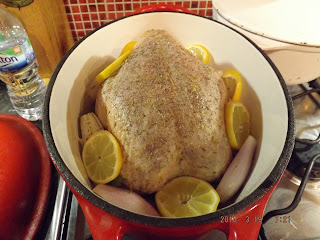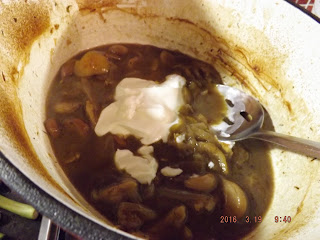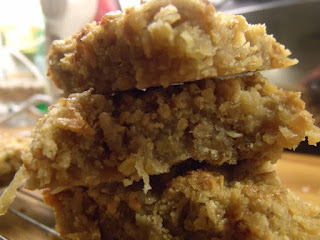Amidst the hustle and bustle of everyday life, it’s easy to
forget about the things that really matter, in my case, spending enough quality time with my children, as I know that
by teaching them and investing in them, you create bright futures for all that
come into contact with them, either directly or indirectly. We talk about
waste; we talk about caring for the environment; we talk about helping those
less fortunate than us.
That is why I am enthusiastic about the idea of promoting a
#BrightFuture, Unilever’s drive to promote sustainability, ethical practice and
their dedication to improving people’s lives across the world. As this is a
food blog, I want to talk about the ways in which you can create brighter futures
for others by thinking seriously about how we buy, treat and consume food.
Unilever’s involvement with Rainforest Alliance certified
products is one way in which you can do something pretty great by doing very
little. A PG cuppa, for example, and a sit down with those who you love is an
immediate hit of kindness and an example of caring for those around you, whilst
supporting those in the tea plantations around the world who wish to farm
sustainably. Making a simple choice of putting a Rainforest Alliance banana
into your child’s lunchbox means that you are thinking about the health and
wellbeing of your children as well as helping those on banana plantations have
a better life. Crumbling a Knorr stock cube to make a chicken stock is
supporting the idea of farming sustainability because of their desire to improving agricultural practices in the production of their goods.
So what do I do? What can we do?
Seasonality
I buy in season. Buying strawberries in winter is crazy
because they take like wet cotton wool and have been flown half way around the
world. The taste of the first strawberry from the garden in late spring/early
summer, when it has been gently warmed by the sun is the stuff that makes us
foodies swoon with delight… and most kids too.
Buy what I need.
I can’t get to the supermarket in the week as I am usually
hiding behind a veritable ‘Great Wall of China’ of exercise books. So, I do it
all online, but only after planning what I intend to cook for the week and
buying just what I need. I used to throw out loads and feel guilty about the
(wo)manpower that had been wasted to make it, the energy needed, the fact that people
are starving in many parts of the world and I am filling a bin full of food
that, with more forethought, could have produced a tasty meal.
Leftovers are pretty fabulous.
The joy of making that oversize cottage pie/lasagne/chilli
is that you get to put what’s leftover into a plastic container and take it to
work the next day. Bung it in the microwave, wait for the ping and hey presto,
you’ve avoided wasting petrol and additional costs by not going to the pie shop
(if you’re me, that is…)
Sustainability and Ethical Practice
The selecting of products which support growers and
producers is something that can be easily accomplished. You’re probably
supporting many of these great causes already by buying products that support
producers worldwide and happily, many of these products are not necessarily
more expensive than those that are not as ethically orientated. Win win.
However, it’s worth considering those products that might be dearer, especially
something like chicken, which tastes so much better when there has been ethical
treatment of the chook before it reaches the bright lights of the fridge
section.
Talking of chicken, and this is where there has to be a
recipe, for this is a food blog, I love getting all of us sat down round the
table sometime of a weekend and having a really good meal. Brighter futures
start at home; those moments where I can spend quality time with Lola and Finn,
chatting, laughing, teaching, caring… Cooking is one of the ways that I show my
love and in my own way I am creating a safe, happy environment which I hope
that will encourage my children to pass on as they grow.
Easter Chicken with Thyme and Garlic, adapted from ‘Eat
Greek for a Week’ by Tonia Buxton
Ingredients:
1.5kg free range/organic/corn-fed chicken
2 lemons (unavoidable air miles, due to a lack of Mediterranean
climate…)
1 bay leaf
3tbsp olive oil
3 tbsp thyme leaves
Approximately 40 cloves of garlic (unpeeled, thankfully)
2 large onions (or you could use 10 peeled shallots)
150ml white wine
250ml chicken stock (I used a Knorr stock cube – see my
preamble)
100ml Greek yoghurt (many small producers make their own
versions of ‘Greek’ yoghurt)
Salt and pepper to taste
Method:
Preheat oven to 180c Put a lemon and a bay leaf into the
cavity of the chicken. Season the chicken all over, including the inside. Brush
the oil over the chicken skin and season it with salt and pepper. Sprinkle one tbsp.
of the thyme leaves over the chicken.
Place the cloves of garlic and the onions in the bottom of a
large ovenproof casserole and put the chicken on top.
Cut the remaining lemon into quarters and tuck them in under
the bird.
Pour over the wine and the chicken stock, then cover with a
tight fitting lid. Put the casserole onto a moderate heat until it reaches a
simmer, then, place in the oven for about 1 ¼ to 1 ½ hours. Ensure the chicken
is cooked through by piercing the thickest part of the leg with a skewer or
knife to see if the juices run clear.
Carefully remove the chicken, onions and garlic to a warmed
dish, leaving the ‘sauce’ in the bottom of the casserole. Cover with foil. Skim
the sauce for any fat that has risen to the surface then add the remaining
thyme and the yoghurt to make a ‘creamy’ sauce. Bring to the boil for a couple
of minutes, season to taste and then pour the sauce into a warmed jug.
Serve the chicken with the sauce and whatever suitable
accompaniments you fancy.
This post is an entry for BritMums #brightFuture Challenge, sponsored by Unilever and linking to http://www.brightfuture.unilever.com.
















































